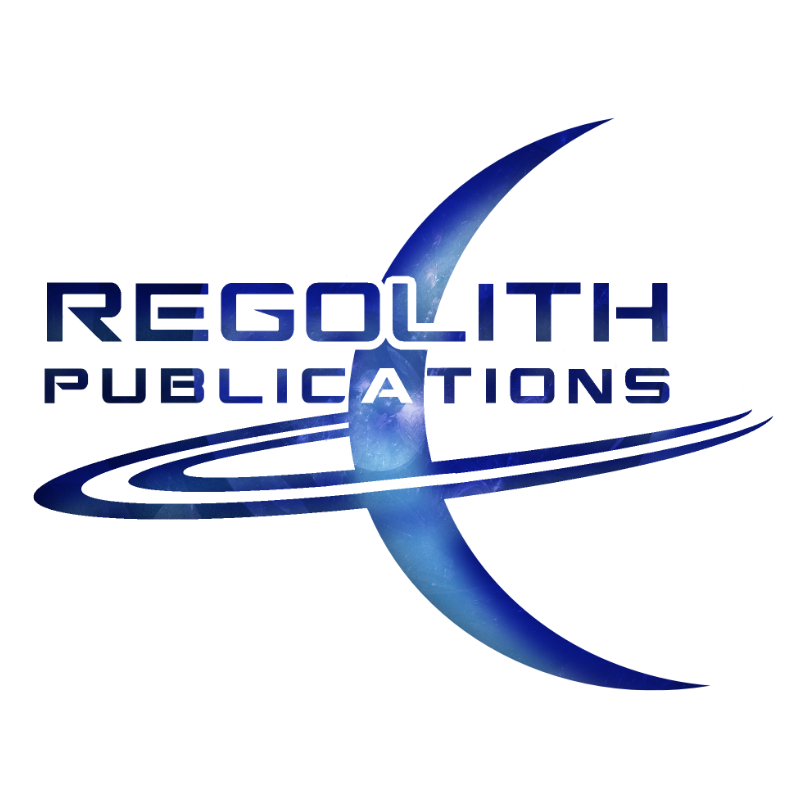|
The Chronicles of Jegra: Gladiatrix of the Galaxy is now available in audiobook from iTunes, Audible, and Amazon.com. Be sure to check it out! Veronica James did an amazing job with the narration! Full on characterizations, accents, and everything!
0 Comments
The Beginning of My Writing Journey Summer. 2002. New York City. I sat in a studio apartment overlooking Washington Square Park. My father had rented the apartment at a $1K per week for the full month of June. We were visiting my brother who was going to the famed New York Film Academy as an up and coming film student. The days were hot. I'd stay in mostly sketching in my art book. In the afternoons I'd visit the local comic book shops -- total Nerdvana for a country boy like me. In the evenings my father and I'd meet up with our brother outside of his school and hit the town. It was a great vacation. I'll never forget that month. Because two things happened. I saw my brother grow into a man and I decided that I wanted to be a writer. I was already and English lit major, but I was undecided about what I wanted to do after graduation. But one afternoon in Washington Square Park across from the NYU library, I glanced up from the fountain bench, admired my surroundings, and then went back to drawing a scarecrow wearing a fedora and raincoat. This would be the inspiration that got me to brainstorm the supernatural noir The Scarecrow & Lady Kingston. A detective story and my first ever novel. It would be a full decade before I penned the story I'd been thinking of for so long. I polished and honed it. Sent it to editors. And then snagged the attention of an editor over at Permuted Press. They liked the book. But it was too avant-garde. Perhaps too abstract to be a hit. It was an art piece. So, the publisher asked me if I had anything else -- something post apocalyptic. I did. I had just written a zombie story. They loved it. They asked me to write three more. I wrote two more before the series got the axe. But I regret nothing. In 2016 the rights to my series came back to me. I republished it under my own imprint Regolith Publications. That's the short version of how I came to be a traditionally published author, a self-published author, and what is commonly referred to as a hybrid author. But it wasn't easy. Hell. It took me a full decade to get a concept down onto paper. It took me two years to write my first novel. I plotted the hell out of my first two books. Both The Scarecrow & Lady Kingston and my first Bitten zompoc novel were meticulously plotted. I think that's the only reason they read so well now. Because my skills starting out weren't great, but they weren't total crap either. But I was obsessed with making the best story I could--and that obsession drove me to be somewhat of a perfectionist. Then, when Permuted picked up my Bitten series I was able to work with industry professionals. I had three editors working on Bitten: Resurrection. It went through several rounds of professional edits and that's how I met my current editor, Sheila Shedd. Having not one, not two, but three editors going over my stuff only made my stories better. Stronger. When I go back and read those two books now, I feel they read well. That is, unlike many who look back at their first works and cringe, I don't feel there's anything I'd necessarily change. I had enough time to get them right the first time. And the right people came on board when I was starting out that I was able to publish something of professional quality. But I was still very much a rookie and didn't know what I was doing. Burnt out on top of losing my series (it got canceled) and I was stuck in a quagmire for a full year without having written anything. Part of the problem was that I had this idea for a sci-fi series in mind, but I knew my skills and my craft simply weren't at the level I needed to tell the grand operatic story I wanted to tell. I needed practice. I needed to master my craft so that I could wield the tools more flawlessly than a professional pianist playing Chopin's Étude Op. 10 No. 4. I simply wasn't there. So I wrote a fantasy series. It's still my top seller and I don't even know why considering its low review status. But I flexed my writing muscle by stretching my skills and attempted a new genre which involved many characters and a lot of world building. I also wrote it ridiculously fast -- pumping out an 80K novel per month for 4 consecutive months, including a novella on top of it all. Because of that pace, I couldn't plot like I did with my previous series. So I wrote a general outline, making sure I had the main story arc of the heroine down and then basically wrote A to B to C and filled in the blanks in-between each plot point. I broke the beats into 4 instead of 3 to mimic television pacing, and I also had my ending in mind before starting so that I could write toward and end goal without getting lost. Always having a point to move toward is key -- especially in terms of setting deadlines. After that, I went and spent a couple of months writing a ton of short stories in the vein of Black Mirror or Love Death and Robots. This became my Dark Forces of Nature anthology. All of the shorts are sci-fi horror. They're all connected by the subtleness of cosmic horror. But I had to focus on structure a lot to make each short work. After writing Dark Forces of Nature, I felt that my skill level finally had gotten to the point where I could write what I wanted with confidence. And so I began thinking about another series that I had, once again, conceptualized a decade earlier. But first, an interlude. InterludeIn the background of writing my special brand of grind-house style fiction, I published a peer reviewed religious philosophy book (non-fiction) and also published an anthology of deconversion stories that I edited with British philosopher Jonathan M.S. Pearce.
As it turned out Pearce and I were working independently on telling other people's deconversion stories from various religions, cults, religious cults, etc. and found each other online and decided to pool our resources. This ended up being the collection of personal essays we co-edited and published as Beyond an Absence of Faith. Getting into serious academic territory with non-fiction taught me a whole different style and discipline to writing. I bounced back and forth between trying to be a philosopher while trying to tell stories. I love both. But, as it would become abundantly clear to me, both are time consuming. At about the time I was beginning my fantasy series Valandra, I realized I had to shift my focus to either writing fiction full time or doing philosophy full time. I looked at numerous grad schools. I even applied to a couple. I applied to begin a Neuroscience doctorate at the University of Auckland, New Zealand, and or Kumamoto University, Japan. The University of Auckland required me to do some undergrad courses first to get into the program and Kumamoto University put me on a waiting list. A month later I decided I didn't actually want to do five more years of school. I wanted to tell stories. So, in 2016, after a year of not writing -- a dark period of depression after Permuted Press cancelled my series and I all but had given up thinking I could be a professional writer -- I kicked it into high gear. Then I bounced back and began a cyberpunk story entitled Robotica. It was 40% finished when something happened that interrupted my completion of that book. My artist friend in Germany got an offer to do Heavy Metal magazine. And he asked me to write it! I have been a fan of Heavy Metal since forever. I love the original animated film (not so much the second one) and had a subscription to the magazine during my teen years. The sex. Violence. The comedic absurdity of it all. I loved it. It wasn't like anything I'd ever seen before. And being asked to write a piece for Heavy Metal was my dream come true. I wrote the script about a buxom gladiatrix fighting aliens in the arena in some backwater galactic empire. There was a running joke in the short 12 page treatment where she starts fully armored and her armor and clothing get so tattered that it all falls off in the end. But she comes out triumphant! If this treatment sounds familiar, it's because it's the basis for my JEGRA series. You see, my artist friend got hired to do the covers to Judge Dread -- his dream gig -- so he put the Heavy Metal project on hold. At the same time, however, I realized that the sci-fi world I've been daydreaming about, filling endless notebooks with alien worlds, names, characters, cultures, and science concepts could blend perfectly with this galactic empire concept I'd created but never sent to Heavy Metal. I emailed my artist friend and double confirmed that he was too busy to submit to Heavy Metal because I took the script and adapted it into what ultimately became Jegra: Gladiatrix of the Galaxy. It combines everything I had worked toward -- space opera, high action, fantasy mixed with science, sex, violence, comedy and all woven together with a bit of cosmic horror. I used the Lovecraftian pantheon of Old Ones as the overarching religion of the books. Because I wanted something familiar -- something anthropologically similar to real-world religion without having to stretch too far or simply copy Christianity / Islam / Judaism. I wanted something familiar, but frightening. Something that acted as the backdrop to the world my characters was in. And the whole Cthulhu mythos blended perfectly in with my sci-fi fantasy. It's why the King in Yellow, Hastur, is the main villain in the initial series. So, I plotted out a much longer story. What happens, I asked myself, to this gladiatrix once she wins all of her bouts? What is beyond that Heavy Metal story concept? A whole grand universe of ideas, that's what. But I wanted very specific things. So I plotted the first book almost as much as I did my Bitten series. Then I loosely jotted down the general outlines for 9 more books in the series. Using the looser writing style of having my key points, A, B, C and then writing to connect the narrative dots, so to speak, I have been able to publish a 120K book every 3 months in addition to the two novellas I've written that tie into the series. I have found that for me personally, writing with a loose structure but with the main points in mind -- including the ending -- I can write quite quickly toward each plot point. And the years of writing and 16 novels later, I finally feel that I have a firm grasp of the skillset required to write at a professional level consistently. I can now write what I see in my head and when I hear it read back to me by my audiobook narrator I know that I'm writing at a level that I can be proud of. I've been writing professionally since 2012, but 2018 was the first year I actually felt like a real writer. I'd finally come into my own. 2019 is the year I ramp up my output and burn rubber, so to speak. I'm going strong with my series, which I'll power all the way to the eight books planned. I have other projects that got put on the back-burner that I want to finish this year too. Bitten 4, Robotica, and Valandra book 5 are all waiting in the wings. The spinoff series Skywend: The Last Peacekeeper will begin immediately after my Jegra series finishes. I have a vampire series starring Dracula that I've plotted tentatively titled Blood Alchemy. I have an action series sitting on deck. And I have a retelling of Romeo and Juliet where Romeo is human and Juliet is a zombie princess and that's why the two families are rivals. It's tentatively titled Romeo and Zombie Juliet. “For never was a story of more woe than this of Juliet and her Romeo.” That brings us fully up to the present. I'm determined to publish 50 books before I turn fifty. That gives me a decade to write roughly 30 books. Simply put, that's 3 books a year. That's more than doable, in my estimation. I hope you've enjoyed reading about my journey as a writer. Everyone's path up the mountain is different. But the destination is always the same. The key is to remember, the only way to become a writer is to write. The only way to become a good writer is to practice and to read -- study your craft. And the only way to be a great writer is to persist against the odds. I intend to be a great writer one day. Heck, I'd be slightly embarrassed to have written for more than two decades only to have gotten less good at my craft. No, the adage is true -- practice makes perfect. So, I'll keeping pushing onward and upward. Eventually, I'll get there. And hopefully I'll see you up there on the peak of Mt. Ambition. --Tristan Vick FINALLY! My review of "Sex Education" airing exclusively on Netflix Sex Education is such a brilliant show. It's a show that hits extremely close to home for me in so many ways. Most of all, the relationship that Otis (Asa Butterfield) and Maeve (Emma Mackey) share is so uncannily similar to something I experienced growing up that I cried at the end of the season for the deluge of all too real memories it brought back. Otis and Maeve seem to be destined soulmates. But she's dating another guy. In episode 3 Maeve finds out she's pregnant with the child from a guy she is hooking up with but doesn't care about. She decides to ask Otis to pick her up at the abortion clinic since she only trusts him and nobody else. Maeve doesn't have any parents. Her dad is dead. Her mom, a drug addict, has been missing for years. Her brother is a transient drug dealer. She lives on her own (like a friend of mine I knew in high school who didn't know where her mother went either). Otis loves Maeve for everything she is. And he's smart enough to not be dragged in by school social cliques and drama. He, like Maeve, exists outside of the school bubble which makes them perfectly suited for the inevitable team-up between the two of them as they start a sex therapy business at school to help frustrated teens with their love lives. It turns into a much bigger business than originally planned and soon they are helping out an entire campus of kids sort out their relationships and sex lives. The show is charming. Genuinely funny. And has excellent character stories. But it's Maeve and Otis's story that really hit me. If I were a boxer, this would be a gut punch so hard that it would make me puke my guts out. I had a girlfriend who also got pregnant by another guy. She decided to keep hers and, well, that effectively ended our relationship. But, I still loved her at the time. Like Otis, who mistakenly thinks Maeve is asking him on a date and he buys her flowers only to realize after the fact that she had an abortion but, in the end, gives her the flowers anyway as an ironic gesture -- which makes her laugh -- all this was me. I experienced this feeling. This situation. Albeit slightly different. The girl I was seeing was like Maeve in so many ways. She had that dark edge, she was a loner, she lived in her own apartment her junior and senior years of high school. She smoked cigarettes and cussed. She didn't care what people thought, dressed punk, and would skip school just as freely and nonchalantly as Maeve does in the series. It was like watching my long lost soul mate. A girl who once told me that we were but two ships passing in the night. That was a very accurate depiction of our relationship. We loved perhaps a little too deeply. And this love we had for one another was perhaps magnified by the halcyon days of our youth. But the series Sex Education captures that feeling so bloody damn well. There's a scene toward the end where Maeve realizes her feelings for Otis and runs to tell him. She finds him with another girl. A girl he likes. She knows she could ruin it and be his, but she pulls back. It's such a bittersweet moment. That's the moment the ships sail past one another. My experience was literally the same but with the roles reverse. I went to her apartment, willing to tell her how I felt, willing to take the place of this guy she didn't even know, willing to raise another man's child because...that's how much I loved her. I stood at her doorstep, my hand on the doorknob when I heard them talking. Talking about what they should do now that she was pregnant. I stood in silence, eavesdropping, and like Maeve, I buckled. I chickened out. The timing was off. There was too much going on. I could barely process what had gone on...I walked away and...our ships past in the night. There's more to this show too that seems to run parallel to my own experiences as this same age. Although my best friend wasn't gay, we were close just like Otis and Eric (Ncuti Gatwa) are in the show. We spent time at each other's houses. Like Otis and Eric, we were as close as brothers. We had a complete level of comfort with one another that leads to a bond closer than most -- the advice of Eric when he's trying to help Otis become comfortable with the notion of masturbating hit home. I shared pubescent discussions with my best friend that was extremely similar. At a time where we were figuring out our bodies and developing...it was nice to have someone right there going through it with you. Another thing that struck me is how the school bully treats Otis. He calls him "new kid," because he can't quite remember Otis ever being anything that stood out enough to pop up on his bully radar. I had that experience too. The bullies never went after me. They were almost oblivious to my existence. But then, one day a big jock -- who was also a dick -- asked me if I was new at school. I was like, dude, we've been in the same class since 5th grade. This was my sophomore year in high school, mind you. When Ottis gets called "new kid" by the bully who is also strongly weirded out by Otis's intelligence and maturity... I laughed so hard. That was me in a nutshell. Like Otis, I was comfortable with who I was. I wasn't doing any soul searching and I wasn't an immature wanker either. I read all the time and had ideas, and could formulate an opinion on things that sounded less like an adolescent and more of an adult. People thought I was weird because of it. But some people saw me for me...and that brings us back to the relationship between Otis and Maeve and the girl that I loved perhaps a little too deeply. You see, Otis loves Maeve for who she is but Maeve can't bring herself to love herself. But Maeve loves Ottis, but can't drop her bullshit facade of an independent woman who doesn't need any guy to admit how much she needs Otis in her life. She uses him as a sounding board for all her problems. She opens up and confides in him. Tells him her most personal secrets. She even shows him where she lives. Something she hasn't even done for anyone else but for her best girlfriend. I was that guy. She was that girl. She confided in me. Told me her most intimate thoughts and feelings. It created a bond between us that felt unbreakable. But she didn't know herself. She didn't accept who she was. So she decided to go down the path of her life rudderless. I knew myself. I sailed onward in a straight line, destination in mind. Our courses diverged. Our ships pulled away from one another. That was that. Sex Education is one of the best damn shows I've ever seen. Even if it didn't resonate so strongly with me it still has an amazing cast. Excellent writing. Superbly fleshed out characters. And Gillian Anderson's eccentric sex-therapist mom of Otis, Jean, steals every scene she's in. The show is genuinely funny. I laughed harder at scenes in this series than any comedy I've ever watched. Butterfield's performance is so enduring, so genuine, so excellent that sometimes I forget I'm watching an actor and Otis seems... so real. He seems...exactly like me. And Maeve...she's that girl. The one that got away. Damn. I love this show. Check out Sex Education on Netflix if you haven't seen it. It will be well worth your time. Heck, it's worth doing Netflix's free trial for, if you don't have Netflix. That's how strongly I feel about this show. |
Tristan VickBy day I am an educator and a cultural ambassador. By night I entertain notions of being a literary master. In reality I am just a family man and ordinary guy who works hard and loves writing just about as much as I love my family. Just about. AVAILABLE NOWNEWSLETTER
|

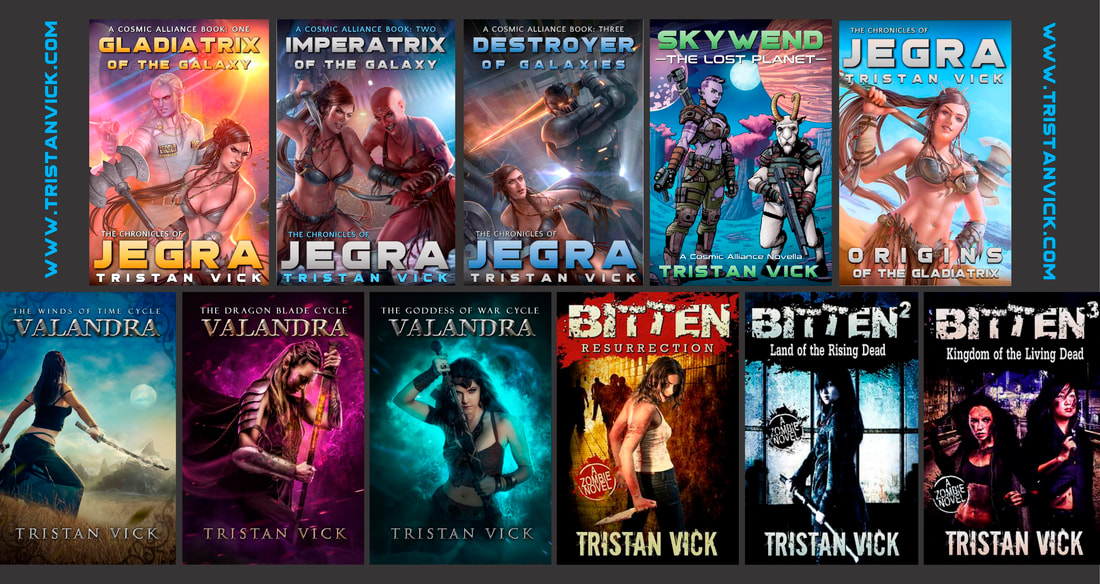
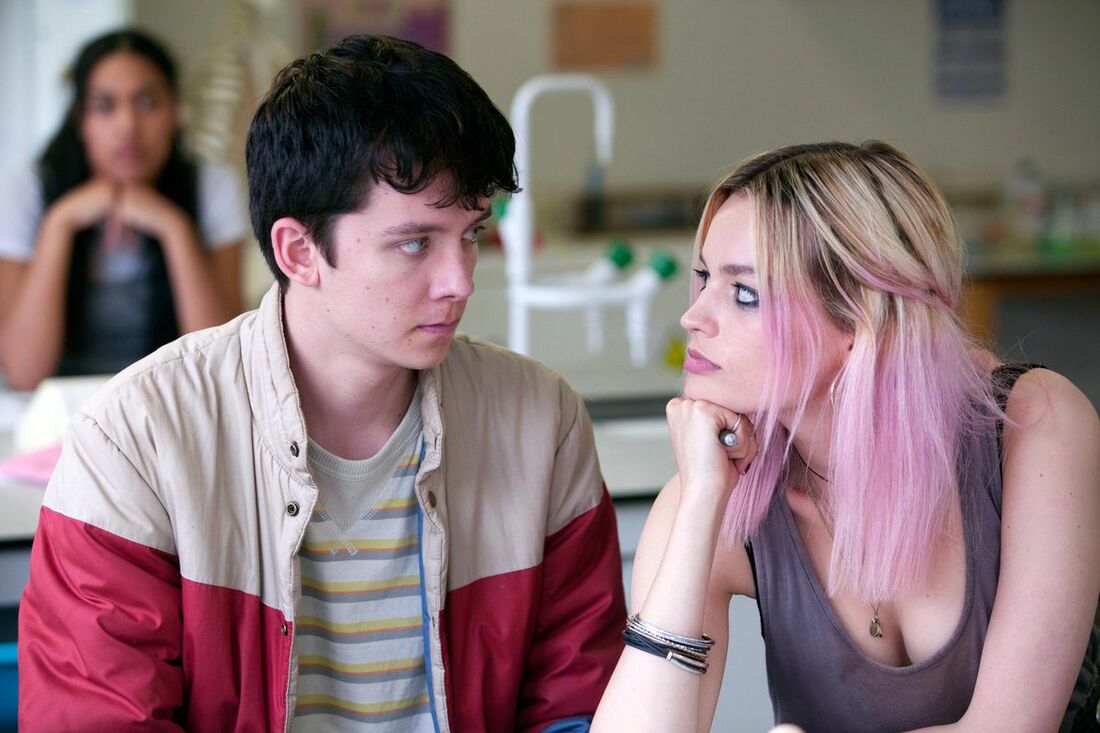


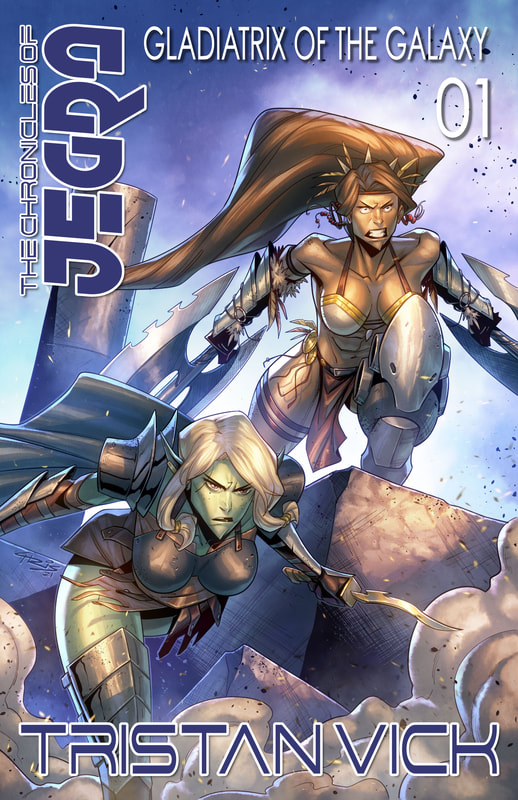
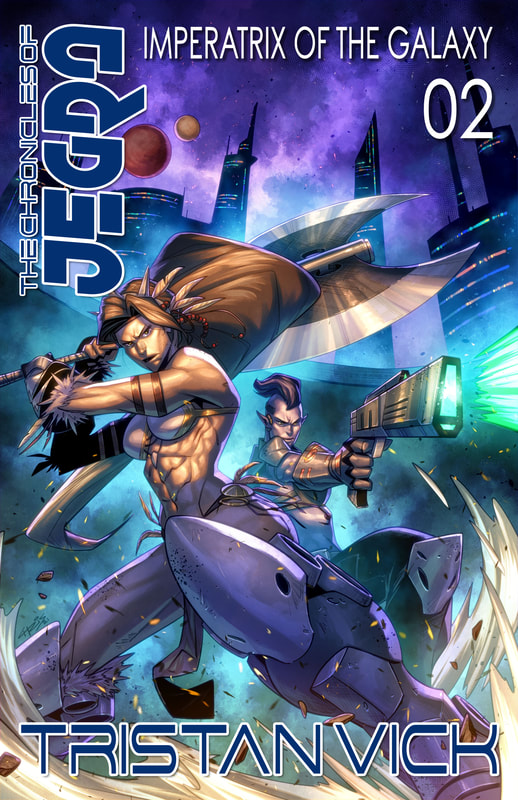
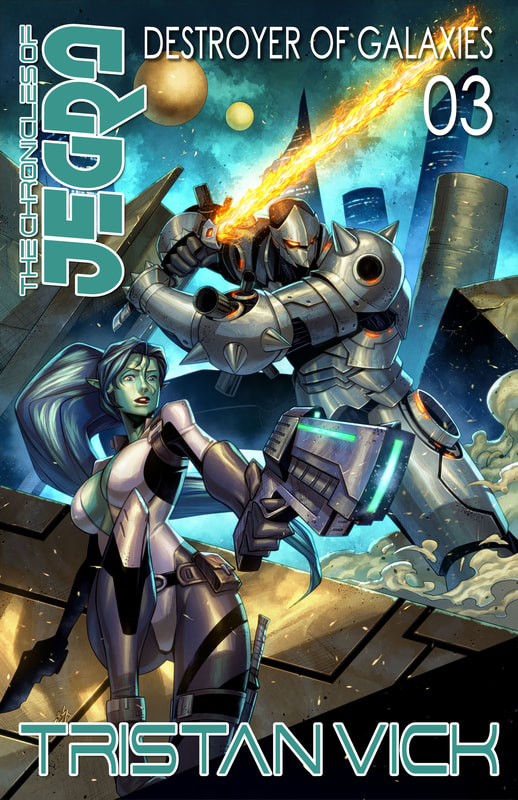
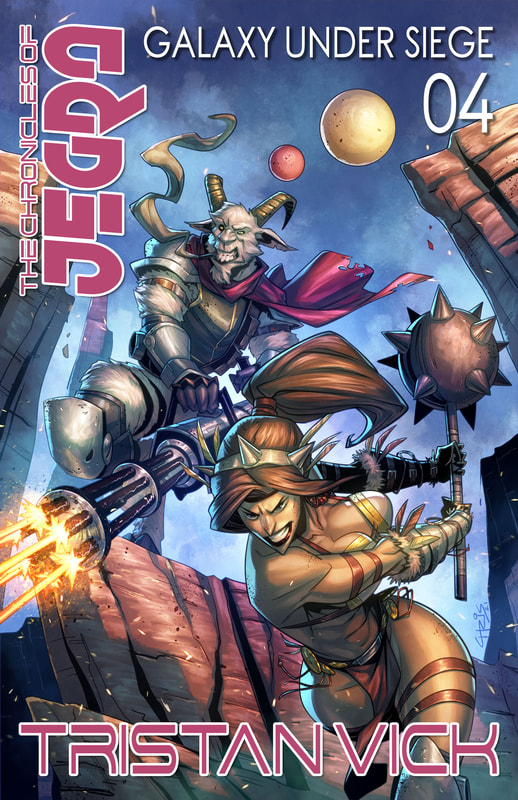
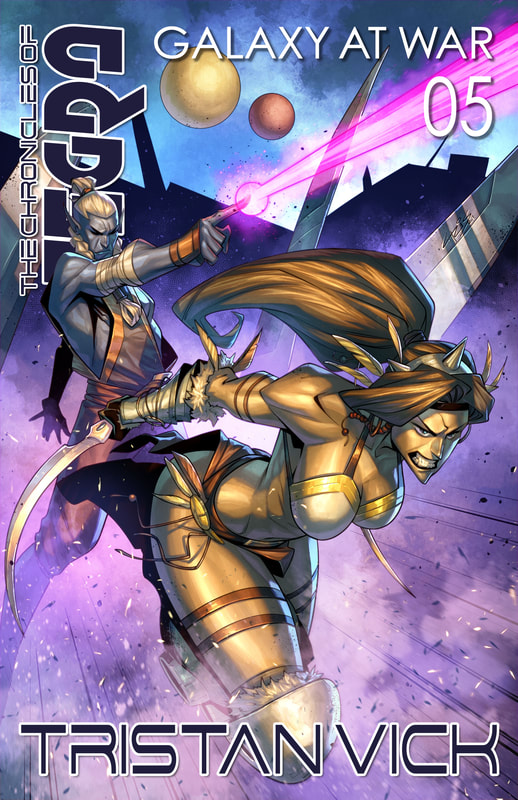
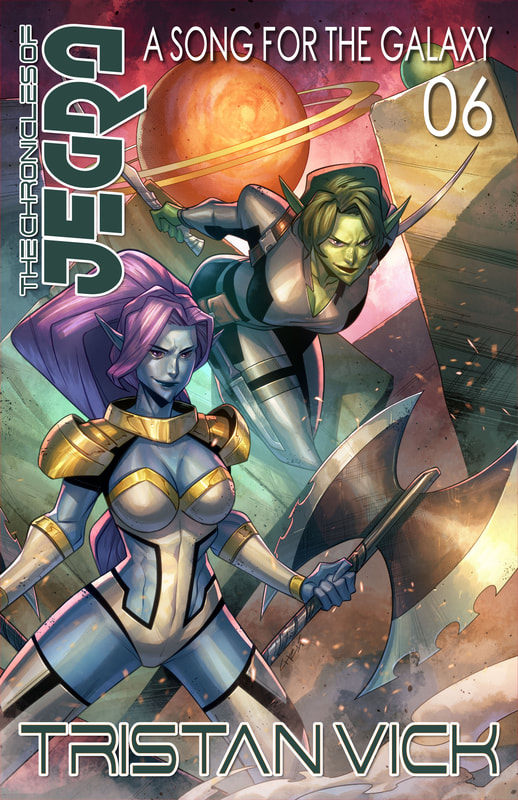
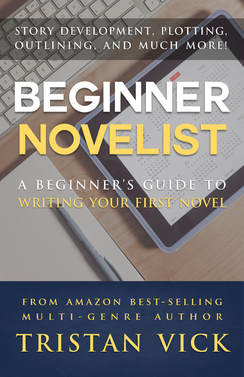
 RSS Feed
RSS Feed
